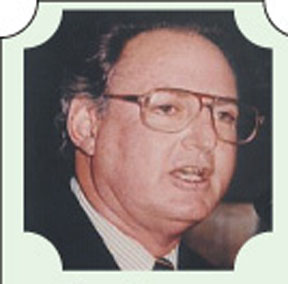IT is a question that still has to be adequately answered five years after Kieron Pollard entered international cricket in the 2007 World Cup, aged 19, a massive unit with a justifiable reputation as an awesome hitter.
Literally on the strength of his quick-fire demolition of bowling in the most abbreviated format, he has become a Twenty20 superstar, a multi-millionaire from his contracts in five such domestic leagues, along with his comparatively modest paydays from the West Indies.

Yet Pollard has repeatedly stated that he won’t be satisfied until he gets the chance to prove himself in Test cricket, with its unrestricted number of overs and field settings and its changing conditions over five days that examine technique, character and stamina in a way that, for all its fast moving excitement and popularity, 20-overs cannot.
The intermediate version, the 50 overs an innings One-Day International, offers a more accurate guide for judging his ultimate desire.
If he can more regularly bat as he did in the fourth ODI against Australia at the Sydney Cricket Ground on Friday, his promotion to a Test team presently without the injured Marlon Samuels, its major batsman of 2012, and with a dearth of other capable candidates, cannot be far off.
His athletic fielding (typified by his extraordinary, leaping, one-handed boundary catch in the Canberra match on Wednesday) and his handy medium-pace bowling add to his value. The two Tests against a modest Zimbabwe next month would be as good a chance as any to check his red-ball value.
The features of his unbeaten 109 were composure, common sense and courage. It could not prevent another West Indies defeat; it did restore some pride for a team increasingly short of it.
It was his third ODI hundred following those against India at Chennai in December 2011 and Australia in St.Lucia last March. No other West Indian has managed as many in the same time span (Samuels has two).
The problem is that, as so often, his latest was counterbalanced by the method of his dismissals in the first two matches in Australia. In the first, his crocked bat was in no position to keep out Mitchell Starc’s third ball; in the second, his approach was typically Twenty20, a failed attempt to hoist his third ball for six that ended in long-off’s lap.
By Sydney, the Twenty20 cobwebs had been swept away. How he goes in today’s final ODI will be instructive.
Just when we thought things couldn’t get any worse, they did within the first 20 overs on Friday.
Once more destroyed by the swing and hostility of a left-arm fast bowler by the name of Mitchell, this one Johnson rather than their earlier tormentor Starc who was given the match off, the West Indies were 17 for three after eight overs.
Just to add to the confusing name game, Johnson sent Johnson Charles’ off-stump somersaulting third ball. Kieron Powell, who had a rewarding instruction to Australia (92 retired hurt, 11, 83 and 47 in his previous matches), skewed a skier to cover from the back of the bat; Darren Bravo, his body a target for the Australians all series, fended a wicked bouncer to slip.
Tentative, the elder Bravo was lbw in off-spinner Glenn Maxwell’s first over. In his first match of the series, Ben Cutting, the latest in the string of strapping young fast bowlers Australia presently possesses as the West Indies once did, quickly took care of Narsingh Deonarine and Devon Thomas to slip catches.
At 55 for six with an erratic order to follow, another humiliating total to match the 70 in the first match at the WACA loomed. At this point, Pollard took charge with a maturity not always evident.
He was prepared for the inevitable bodyline barrage but the chest guard was uncomfortable and he did away with it. A short leg was placed (they might have watched Guyana’s similar tactic in the Caribbean Twenty20), Johnson twice had him diving for cover and Cutting landed a blow to the unprotected thumb on the left glove that required lengthy attention from physio C.J.Clark.
Still Pollard soldiered on, undistracted from his goal of reviving the faltering innings, as he did with help from Darren Sammy, the free-hitting Andre Russell and Sunil Narine (who could rank higher than No.10 with more attention to his left-handed batting).
Statistics reveal the measure of Pollard’s necessary restraint – 95 balls with four fours to 50, seven fours and two sixes in 59 off the next 41 balls. His contribution was 92 off the 165 added by the last four wickets.
Significantly, Pollard embarked on his previous two hundreds with the innings in shambles; 78 for five that his 119 pushed to 233 against India, 146 for five against Australia that became 294 for seven, mainly through his 104. As much as the selectors should be heartened by such performances, they will be concerned over inconsistency (as with every other batsman save Shivnarine Chanderpaul) and whether his hunger for Test cricket overrides the riches on offer in the Twenty20 leagues.
These are the questions they need to settle prior to the Zimbabwe series.
SO now we know.
Wavell Hinds has the answer to why Ramnaresh Sarwan was selected for the current ODIs in Australia, in spite of his long absence from international cricket and his embarrassing rustiness in the preceding Caribbean Twenty20.
It was “purely political”, the former Jamaica and West Indies batsman who is now president of the West Indies Players Association (WIPA), declared last week on the Sportsmax television programme he co-hosts.
As far as I could understand it, the explanation went like this. The West Indies Cricket Board (WICB) has elections for president and vice-president next month and the votes from the Guyana representatives (whoever they are, presuming they are any at all given the continuing administrative shambles there) could be decisive. Therefore the word went out to get Sarwan picked. Q.E.D.
While the WIPA is never short of theories on the workings – or not, as the case may be – of the WICB, the suggestion that Sarwan, a prominent member, was in Australia, not on merit but through some conspiracy, was peculiar, to say the least.
Hinds did not ascribe any reasons for the inclusion of Johnson Charles and Devon Thomas.




